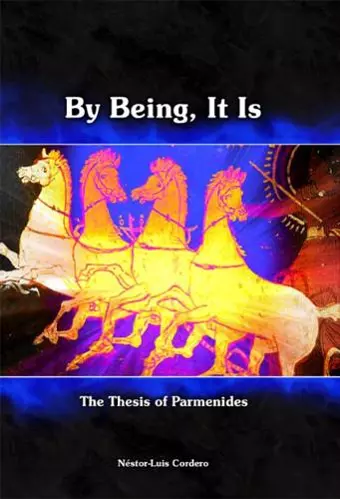By Being, It Is
The Thesis of Parmenides
Format:Hardback
Publisher:Parmenides Publishing
Published:30th Oct '04
Currently unavailable, and unfortunately no date known when it will be back

The adventure of philosophy began in Greece, where it was gradually developed by the ancient thinkers as a special kind of knowledge by which to explain the totality of things. In fact, the Greek language has always used the word onta, ""beings,"" to refer to things. At the end of the sixth century BCE, Parmenides wrote a poem to affirm his fundamental thesis upon which all philosophical systems should be based: that there are beings.
In By Being, It Is, Néstor-Luis Cordero explores the richness of this Parmenidean thesis, which became the cornerstone of philosophy. Cordero's textual analysis of the poem's fragments reveals that Parmenides' intention was highly didactic. His poem applied, for the first time, an explicative method that deduced consequences from a true axiom: by being, it is. To ignore this reality meant to be a victim of opinions.
This volume explains how without this conceptual base, all later ontology would have been impossible. This book offers a clear and concise introduction to the Parmenidean doctrine and helps the reader appreciate the imperative value of Parmenides's claim that ""by being, it is.
By Being, It Is, a work which shares with Curd and Hermann the view that Parmenides’ interest is primarily in method; though Cordero takes a more metaphysical line on what the method is for, arguing not only that Parmenides’ poem was not cosmological, but that it makes no sense even to talk of cosmology in a Parmenidean context. The sum of Parmenides’ contention is that ‘that which is being is’ – a thesis explored in the first route described by the goddess. (The second route, identified with the path taken later on by mortals when they mix being with not-being, explores the absurdity of negating this thesis.) . . . the argument itself its powerful, and Cordero’s work invaluable for its reassessment of the textual tradition for Parmenides, which has led him to challenge crucial readings whose speculative roots most of us have forgotten, or else ignore"". - Cambridge Journals
ISBN: 9781930972032
Dimensions: 25mm x 17mm x 2mm
Weight: 567g
230 pages